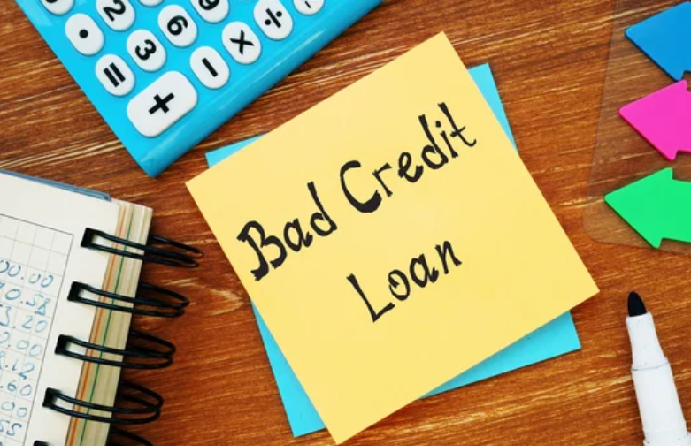When you’re in your 20s and 30s, it’s easy to get caught up in the excitement of your newfound independence and the endless possibilities that come with it. Now is also important to start getting your finances in order and building a strong foundation for the future.
Many young adults make bad financial choices that can hurt them for a long time. Here, we’ll talk about common financial mistakes that people in their 20s and 30s should try to avoid if they want to be financially successful now and in the future.
Money Mistakes To Avoid in the 20s and 30s
1. Spending Too Much
In your 20s, you can try new things and learn more about yourself. When you’re on your own for the first time, it’s easy to get excited and spend money on things you don’t really need. But spending too much money can cause long-term money problems.
People often make the mistake of living above their means in their 20s. Stick to a budget. You can have fun and reward yourself, but be careful with your money. Consider setting aside a certain amount each month to spend on things you want. Don’t use credit cards if you can’t pay off the balance in full every month.
2. Not Saving Money
People in their 20s and 30s often make big financial mistake by not starting to invest early enough. Many young adults think they have lots of time to start investing later in life, but this couldn’t be further from the truth.
You can save on taxes and give your money time to grow with these accounts. Even if you can give a small amount each month, you should start saving as soon as possible. Investing involves some risk, but it’s important to remember that the stock market tends to go up in the long run.
If you want to start a business but have poor credit, then instead of using your savings, you can apply for business loans for bad credit. Use such tactics to avoid spending your savings away.
If you don’t start investing early enough, you might miss out on possible gains and make your financial future less secure.
3. Not Having a Saving Account
People in their 20s and 30s who don’t have an emergency fund are often making a big financial mistake. Costs can come up at any time in life, and you can’t always plan for them. If you don’t have an emergency fund, you might have to pay for these costs with credit cards or loans.
An emergency fund is a savings account that you set up for things like medical bills, car repairs, or losing your job. Start small and work up with this enormous job. Monthly transfers from your bank account to your emergency fund are possible.
Having an emergency fund gives you peace of mind. It helps you avoid high-interest debt and lets you handle unexpected costs without derailing your long-term financial goals.
If you have bad credit and want to start a company, don’t use business loans for bad credit. Starting a business can be both exciting and costly. You might not want to apply for any business loans at all if you have bad credit.
But when starting a business, it can be a big mistake not to use business loans for bad credit. There are companies that only give loans to people with bad credit. These loans may have higher interest rates or stricter terms for paying them back, but they can give you the money you need to start your business.
4. Not Saving for Retirement
If you’re in your 20s or 30s, you might think that retirement is a long way off and that you don’t need to worry about it yet. Many people make the mistake of thinking they can work well into their golden years, but that’s not always the case.
Unexpected things can mess up your plans and make it hard to pay your bills, like getting sick or losing your job. So, it’s important to start saving for retirement as soon as possible. Even if you can only put in a small amount each month, it will add up over time because of compound interest.
Also, many employers will match your contributions to 401(k)s or IRAs, so take advantage of these perks if you can. Don’t wait until it’s too late to save money for the future. Start now.
5. Not Utilising a Good Credit Score To Get Low-Interest Debt
Many people in their twenties and thirties fail to take advantage of a low-interest loan because of their excellent credit scores. This is one of the most common financial blunders of people of all age groups.
High-interest debt may add up to tens of thousands to a person’s total cost of borrowing over the course of their lifetime. Mortgage loans, auto loans, and educational loans all provide cheap interest rates for those with solid credit.
Loans such as very bad credit loans with no guarantor and no broker are available to those with poor credit. These are unsecured, short-term loans where the interest rate might change during the course of the loan. These are designed for those who banks and other conventional loan providers reject.
Investigating your financial alternatives and selecting loans with the lowest interest rates may save you a significant amount of money over time.
Conclusion
It’s important to avoid making money mistakes in your 20s and 30s if you want to have a stable financial future.
By knowing about these traps and taking steps to avoid them, you can set yourself up for long-term success. Remember that small changes you make today can make a big difference tomorrow, so start making smart financial decisions now to make sure you have a bright future.

Anna Johnson has more than 11 years of experience in direct lending industry of the UK. She is the Senior Content Editor at 24cashflow where she is leading a large team of loan experts. During her career, she has helped the loan aspirants to use the particular loans in the best way and improve their financial lives and status.
Anna Johnson is known for her in-depth research of the UK loan marketplace, as she has worked with many major lending firms in her career. During her educational phase, she has done a research on ‘Finance Fundamentals for Growing Business’.


